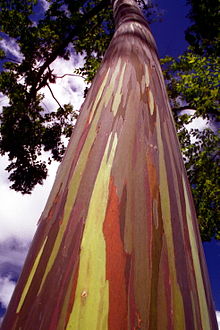World University and Schol and coding re service science - “serviciology” ...
"I’d prefer “serviciology” that is comparable to biology, geology, cosmology ..." Paul Huppertz
*
Dear all,
many thanks to Scott for involving me in this mail thread and for referring to my slide deck ‘Service – Word & Term’ from August 2014.
The definition of the term ‘service’ that is derived & explained in this slide deck consistently resolves the “nagging issue at the core of service science is lack of a single, universal definition of service that is useful across all service contexts” described by Professor Steven Alter from the University of San Francisco in his compendium 'Integrated, Operational Perspective on Service and Service Systems' from January 2016.
This is explained in detail in the LinkedIn forum ‘Service Definition – Nagging Issue & Consistent Resolution’.
In short, and unless it is demonstrably disproved, the sequence of arguments is
· the generic & distinct, complete & consistent definition of the term ‘service’ as derived & explained in the slide deck ‘Service - Word & Term’ is the robust & resilient cornerstone of the service terminology with conclusive & mutually consistent definitions of all the other service terms
o s. Glossar Service-Terminology (still in German)
· the consistent & coherent service terminology is the solid & self-supporting foundation
o of the plain & catchy methods for standardised & rationalised, automated & optimised service providing (= servuction) as explained in the whitepaper ‘Servicialisation’
o of the serviciology, the science & teaching about service & about service providing (= servuction) as explained the slide deck ‘Serviciology – Service Terminology & Service Taxonomy’.
· based on the 5-stage maturity model ServProMM (Service Providing Maturity Model), the methods combined in the guiding concept of servicialisation can be stepwise introduced & then routinely applied for purposefully & sustainably optimising the current service providing with regard to
o reliability & security of each singular & unique service transaction
o efficiency of service providing (= servuctivity) for all service types
o service providing cost per service provision unit for each service type
§ s. whitepaper ‘Servicialisation’
§ s. roadmap ‘Servicialisierung’
For teaching all this, I have developed the training series ‘ServicEducatioin – Methodik der Service-Erbringung/Methodology of Service Providing’ (in German)
§ s. description of the training series ‘ServicEducation’
You may find the slide decks for the seminars, and several other presentations or documents concerning service providing management, in my SlideShare folder
Any feedback welcome at any time. Looking forward to discuss with you, occasionally
Kind regards
Paul
Paul G. Huppertz
Servicing Consultant & Service Composer
servicEvolution
*
Hi Paul, and Christopher,
Thanks for your email, and great.
I appreciate the remarkable thought you've given to developing service science "theoretically" and especially terminology-wise and linguistically, as well. It will be interesting to observe how this may develop into all ~200 countries, nation states' (and territories') main and official languages, and potentially at wiki World University and School, which is planning both "Harvards of the Web" in each of these, as well as wiki schools for open teaching and learning in all 7,097 known living languages.
I'm curious, further, about ways in which you would conceptualize and operationalize a) the concept of wiki (e.g. in Wikipedia / Wikidata in its 358 languages) in service science terms, b) Creative Commons' licensing itself (e.g. as in CC MIT OpenCourseWare in its 7 languages and CC Yale OYC in English) in service science terms, and c) potentially wiki schools in all 7,097 living languages (per Ethnologue) or 7,943 entries languages (per Glottolog) as services, and in service science terms? To limit the scope of these "service science" theoretical questions for pragmatic purposes, and in terms of development and coding, in what ways perhaps might the 4) languages of Switzerland (French, German, Italian and Romansh) become the basis for developing "theorizing" about these above questions: a) wiki as service in terms of service science, b) CC as service and c) access to languages and translation (as in the planned WUaS Universal Translator) as service? WUaS is planning all of these on both an a) non profit 501 c 3 wing, as well as b) on an upcoming for-profit wing - again in all countries' official / main languages and in all 8k languages. Thank you.
Are we going to talk this Friday, about WUaS re the Swiss Alliance for Data Intensive Services Christoph? How best to do this?
Thanks.
Best, Scott
*
Hi Scott,
I’d suggest a stepwise approach
· discussing & scrutinising, reviewing & revising the definition of the term ‘service’
· discussing & scrutinising, reviewing & revising the definition of the next basic service terms, e.g. service customer, service customer, service provider, …
· deriving the method for identifying service types for the definition of the tem ‘servcie’
· creating a proper service taxonomy
· discussing & scrutinising, reviewing & revising the generic service providing model
· discussing & scrutinising the next methods
· combining the methods for service providing in the guiding concept of servicialisation in analogy & demarcation to industrialisation
More details inserted into your message.
Kind regards
Paul
Von: Scott MacLeod [mailto:sgkmacleod@worlduniversityandschool.org]
Gesendet: Montag, 30. Januar 2017 21:00
An: Paul G Huppertz
Cc: Jim Spohrer; Haluk Demirkan; Heitz Christoph (heit); Gerold Baudinot; Scott MacLeod
Betreff: Re: ISSIP Service Innovation Presentation: Jan. 25 - 7:30 am Pacific Time (San Francisco Time Zone) – Presentation of Prof. Dr. Christoph Heitz, Zurich Univ. of Appl. Sc. ZHAW
Thanks for your email, and great.
I appreciate the remarkable thought you've given to developing service science "theoretically" and especially terminology-wise and linguistically, as well. It will be interesting to observe how this may develop into all ~200 countries, nation states' (and territories') main and official languages, and potentially at wiki World University and School, which is planning both "Harvards of the Web" in each of these, as well as wiki schools for open teaching and learning in all 7,097 known living languages.
[PGH] Sounds like a „world wide challenge“ ;-)
Regarding all the required translations, more precisely: transfers of meanings, it is crucial to have a solid foundation of prospects before we start. Thus, I’d beg you all to scrutinise & revise the following thoughts & arguments regarding this subject area
· as a title for the discipline, I’d prefer “serviciology” that is comparable to biology, geology, cosmology, … so that it can be easily transferred to romance languages at least
· the word ‘service’ is derived from the Latin noun ‘servitium’ – ‘(bond)service, slavery’
· the Latin noun ‘servitium’ is based on the Latin verb ‘servire’ – ‘to administer to someone, to attend someone’
· the Latin verb ‘servire’ reveals that an addressee must be attended, i.e. the service consumer; in other words: no service (rendering) without a service consumer
· for properly attending someone, one must know
o what must be done for him, in other words: which benefit must be effectuated for him
o when it must be done for him, in other words: at which daytime, weekday, …
o where it must be done for him, in other words: at which location, place, interface, …
· then it must be clarified to which object the benefit must be effectuated; during my researches, I have found in the literature that there just 4 categories of service objects which is easy, plausible & catchy
o life and limb of the triggering service consumer
o goods and chattels of the triggering service consumer
o rights and claims of the triggering service consumer
o data and documents of the triggering service consumer
· furthermore, one must distinguish the singular services from the respective service type and/or class of service
· consequently, each provided and/or required service type can be precisely & succinctly identified
o by means of the 3 generic & constitutive service identifiers
o from the perspectives & perceptions of addressed and/or authorised service consumer ,
· namely by means of
o Service Consumer whom to a singular service must be seamlessly & reliably rendered on his explicit service trigger
o Service Object which to the service-specific benefit must be effectuated for an authorised service consumer on his explicit service trigger
o Service-specific Benefit that must be safely & securely, completely & concisely effectuated to the service object handed over for this purpose by an authorised service consumer with his explicit service trigger to the respective service providing environment, more precisely: to the custody & control of the accountable service provider
Conclusion: there is no service (rendering) at all
· without an authorised service consumer
· without a service object of an authorised service consumer
· without an explicit service trigger of an authorised service consumer
· without a service object handed over by a trigger service consumer.
In other words. Only when an authorised service consumer explicitly triggers a singular service of a certain type and hands over his current service object, a singular & unique service transaction is initiated in the course of which the service-specific benefit of the triggered service type is effectuated to the service consumer’s service object. Thus, the status of his object is purposefully changed so that its final status satisfies his current exigencies & expectations. Only based on the completely & concisely changed status of his service object the triggering service consumer can efficiently execute his upcoming activity creating value in so doing, either in business or in privateness. The latter was his motive to trigger such a service and to hand over his service object, if even is not aware of this and must not be aware of this.
The most simple example, I have taken for myself for better understand service providing, is the taxi service, more precisely: the service type ‘car-based people transporting service’ that can be precisely & succinctly identified by means of its 3 constitutive service identifiers
· Service Consumer: traveller
· Service Object: life & limb of the triggering service consumer, i.e. traveller
· Service-specific Benefit: the traveller is transported from his starting point to the destination he has appointed
I'm curious, further, about ways in which you would conceptualize and operationalize
[PGH] a) the concept of wiki (e.g. in Wikipedia / Wikidata in its 358 languages) in service science terms,
· terminology
· taxonomy
· methdology
[PGH] b) Creative Commons' licensing itself (e.g. as in CC MIT OpenCourseWare in its 7 languages and CC Yale OYC in English) in service science terms, and
[PGH] everything should be open for everybody, can be revised in comments, … as common in Wikipedia
[PGH] c) potentially wiki schools in all 7,097 living languages (per Ethnologue) or 7,943 entries languages (per Glottolog) as services, and in service science terms? To limit the scope of these "service science" theoretical questions for pragmatic purposes, and in terms of development and coding, in what ways perhaps might the
[PGH] Later on
[PGH] 4) languages of Switzerland (French, German, Italian and Romansh) become the basis for developing "theorizing" about these above questions: a) wiki as service in terms of service science, b) CC as service and c) access to languages and translation (as in the planned WUaS Universal Translator) as service? WUaS is planning all of these on both an a) non profit 501 c 3 wing, as well as b) on an upcoming for-profit wing - again in all countries' official / main languages and in all 8k languages. Thank you.
[PGH] no idea, yet.
*
Hi Paul, Christoph and Gerold,
Thanks, and great, Paul! As just one quick response, re your thought here ...
[PGH] b) Creative Commons' licensing itself (e.g. as in CC MIT OpenCourseWare in its 7 languages and CC Yale OYC in English) in service science terms, and
[PGH] everything should be open for everybody, can be revised in comments, … as common in Wikipedia
Per CC MIT OCW in its 7 languages, its CC-4 license allows for a) sharing, b) adaptation (e.g. WUaS can add it to CC-0 Wikidata and develop it with A.I., machine learning and machine translation), BUT non-commercially re MIT OCW CC-4, while Wikidata CC-0 can be commercial.
And WUaS plans to share adapt and accredit on CC MIT OCW offering this for free CC OCW degrees (in all countries' languages) on our 501 c 3 (U.S. non-profit status) wing, but WUaS CAN'T develop our all 8k languages' FOR-PROFIT bookstore/computer store reading from the MIT OCW individual courses' reading lists, because MIT OCW has a business arrangement with Amazon.com (which is a for profit, publicly traded company offering stock) where Amazon.com links are on all the MIT OCW books that Amazon has available in MIT OCW.
This particular example may help focus your “serviciology” theorizing both in terms of A) a CC OCW WUaS non-profit wing (as a particular, real world example) and B) a planned, upcoming for-profit wing with a bookstore planning to offer books to students in all countries' main and official languages (where perhaps their governments may help pay for these books, paralleling the way the K-12 public school system in the U.S. purchases, for example, McGraw-Hill textbooks and gives them to all students for free - for the 90--95% of U.S. students who choose US public education).
Christoph and Gerold, in exploring planning to "build out" or newly code World University and School, first with its course catalog and its main "You and World University and School" for applying and matriculating 17 year old students this autumn, in English, I wonder how further to incorporate “serviciology” conceptualizing while simply beginning to develop in / code in Wikidata / MediaWiki / and perhaps Google with a front end of HTML 5. At this stage, simply beginning to code (based too on the ~720 WUaS Wikia wiki pages) will then allow Paul's “serviciology” theorizing to inform subsequent important development / coding questions. At the same time, WUaS may seek to link CC-0 Wikidata / Wikisource (Wikipedia's library project) Q-item numbers for every book, document and other media items to WUaS's bookstore on our for-profit side, thus side-stepping the business linkage between CC-4 non-profit MIT OCW and for-profit Amazon.com.
In talking about the WUaS web site, potentially this Friday, February 3rd, how best to plan for simply building out WUaS's course catalog and "You at WUaS" to begin - and possibly with Switzerland's 4 languages as prototype, on both WUaS's non-profit CC wing and planned upcoming for-profit wing?
World University and School seeks to serve both our matriculated students in all ~200 countries' main and official languages, as well as WUaS wiki-learners, wiki-teachers and wiki-editors in all 8k languages.
More later.
Best regards, Scott
*
...







 Nicola Sturgeon
Nicola Sturgeon 







